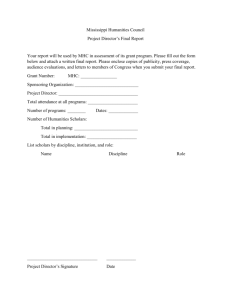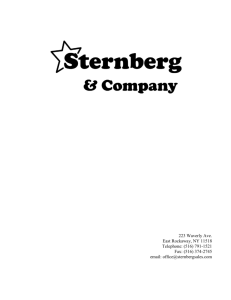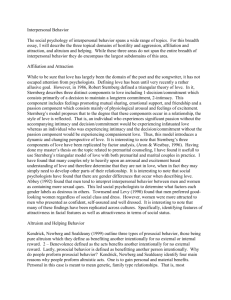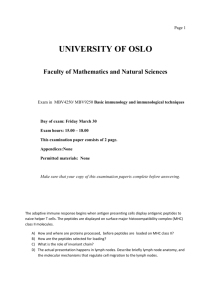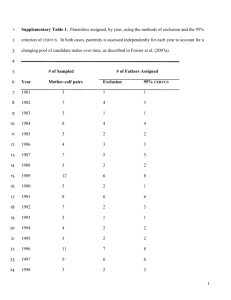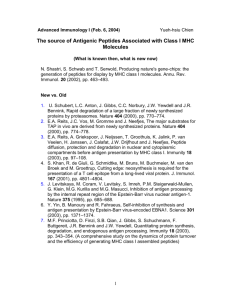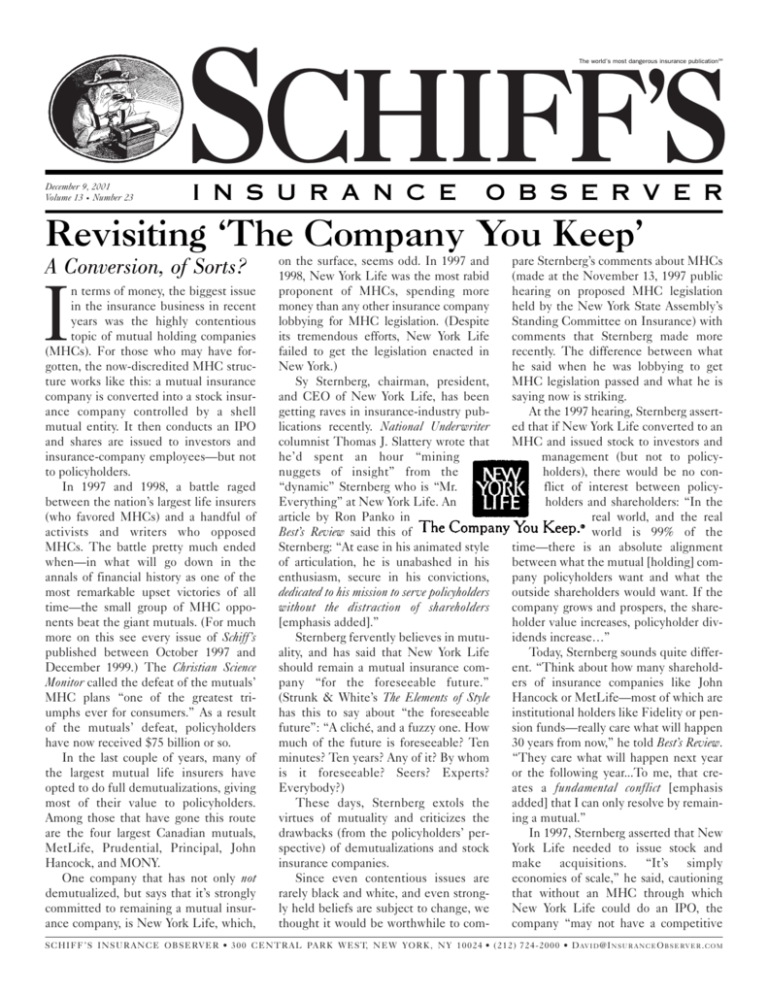
SCHIFF’S
The world’s most dangerous insurance publicationSM
December 9, 2001
Volume 13 • Number 23
I N S U R A N C E
O B S E R V E R
Revisiting ‘The Company You Keep’
A Conversion, of Sorts?
I
n terms of money, the biggest issue
in the insurance business in recent
years was the highly contentious
topic of mutual holding companies
(MHCs). For those who may have forgotten, the now-discredited MHC structure works like this: a mutual insurance
company is converted into a stock insurance company controlled by a shell
mutual entity. It then conducts an IPO
and shares are issued to investors and
insurance-company employees—but not
to policyholders.
In 1997 and 1998, a battle raged
between the nation’s largest life insurers
(who favored MHCs) and a handful of
activists and writers who opposed
MHCs. The battle pretty much ended
when—in what will go down in the
annals of financial history as one of the
most remarkable upset victories of all
time—the small group of MHC opponents beat the giant mutuals. (For much
more on this see every issue of Schiff’s
published between October 1997 and
December 1999.) The Christian Science
Monitor called the defeat of the mutuals’
MHC plans “one of the greatest triumphs ever for consumers.” As a result
of the mutuals’ defeat, policyholders
have now received $75 billion or so.
In the last couple of years, many of
the largest mutual life insurers have
opted to do full demutualizations, giving
most of their value to policyholders.
Among those that have gone this route
are the four largest Canadian mutuals,
MetLife, Prudential, Principal, John
Hancock, and MONY.
One company that has not only not
demutualized, but says that it’s strongly
committed to remaining a mutual insurance company, is New York Life, which,
on the surface, seems odd. In 1997 and
1998, New York Life was the most rabid
proponent of MHCs, spending more
money than any other insurance company
lobbying for MHC legislation. (Despite
its tremendous efforts, New York Life
failed to get the legislation enacted in
New York.)
Sy Sternberg, chairman, president,
and CEO of New York Life, has been
getting raves in insurance-industry publications recently. National Underwriter
columnist Thomas J. Slattery wrote that
he’d spent an hour “mining
nuggets of insight” from the
“dynamic” Sternberg who is “Mr.
Everything” at New York Life. An
article by Ron Panko in
Best’s Review said this of
Sternberg: “At ease in his animated style
of articulation, he is unabashed in his
enthusiasm, secure in his convictions,
dedicated to his mission to serve policyholders
without the distraction of shareholders
[emphasis added].”
Sternberg fervently believes in mutuality, and has said that New York Life
should remain a mutual insurance company “for the foreseeable future.”
(Strunk & White’s The Elements of Style
has this to say about “the foreseeable
future”: “A cliché, and a fuzzy one. How
much of the future is foreseeable? Ten
minutes? Ten years? Any of it? By whom
is it foreseeable? Seers? Experts?
Everybody?)
These days, Sternberg extols the
virtues of mutuality and criticizes the
drawbacks (from the policyholders’ perspective) of demutualizations and stock
insurance companies.
Since even contentious issues are
rarely black and white, and even strongly held beliefs are subject to change, we
thought it would be worthwhile to com-
pare Sternberg’s comments about MHCs
(made at the November 13, 1997 public
hearing on proposed MHC legislation
held by the New York State Assembly’s
Standing Committee on Insurance) with
comments that Sternberg made more
recently. The difference between what
he said when he was lobbying to get
MHC legislation passed and what he is
saying now is striking.
At the 1997 hearing, Sternberg asserted that if New York Life converted to an
MHC and issued stock to investors and
management (but not to policyholders), there would be no conflict of interest between policyholders and shareholders: “In the
real world, and the real
world is 99% of the
time—there is an absolute alignment
between what the mutual [holding] company policyholders want and what the
outside shareholders would want. If the
company grows and prospers, the shareholder value increases, policyholder dividends increase…”
Today, Sternberg sounds quite different. “Think about how many shareholders of insurance companies like John
Hancock or MetLife—most of which are
institutional holders like Fidelity or pension funds—really care what will happen
30 years from now,” he told Best’s Review.
“They care what will happen next year
or the following year...To me, that creates a fundamental conflict [emphasis
added] that I can only resolve by remaining a mutual.”
In 1997, Sternberg asserted that New
York Life needed to issue stock and
make acquisitions. “It’s simply
economies of scale,” he said, cautioning
that without an MHC through which
New York Life could do an IPO, the
company “may not have a competitive
SCHIFF’S INSURANCE OBSERVER • 300 CENTRAL PARK WEST, NEW YORK, NY 10024 • (212) 724-2000 • D AV I D @I N S U R A N C E O B S E RV E R . C O M
level of expenses” to “maintain those
[policyholder] dividends that we’ve
talked about.”
The recent Best’s Review article contained a different opinion: “Participating
whole-life policies are where mutual companies can beat the performance of a
stock-company product, Steinberg said.
Most stock companies try to achieve a
return of 15% or so in each new product,
while mutuals might accept a lower
return…‘That’s why participating policies
can’t be supported in a stock company.’”
In 1997, Sternberg was adamant that
an MHC was the magic bullet for New
York Life’s capital needs. “I am convinced,” he said, “that witnesses at the
prior hearing who questioned our need
for capital do not appreciate today’s market dynamics.” (The witnesses Sternberg
was referring to were New York City’s
public advocate Mark Green, Jason
Adkins of the Center for Insurance
Research, Ralph Nader, James Hunt of
the Consumer Federation of America,
David Schiff, and Herbert Kurz, chairman of Presidential Life. In fact, these
witnesses didn’t question the possible
need for capital; they criticized the
MHC concept and the specifics of the
proposed bill.) Sternberg continued:
“We need capital to develop our insurance operations domestically and internationally, to build new technologies
and to engage in other business initiatives. Lack of enabling mutual-holdingcompany legislation is an unacceptable
situation for my policyholders…it may
very well be a long-term survival
issue.”
Now, Sternberg says that New York
Life’s capital position “is such that we
don’t require additional capital.”
In 1997, Sternberg said that going
public via the MHC route (in which policyholders would receive nothing) was
best for policyholders: “If we sell more
business and take market share away
from other companies, we grow. And if
we grow, the price of our stock grows.
And if the price of our stock grows,
everyone becomes rich. Our policyholders [who would receive no shares]
become rich and the shareholders
become rich.”
In response, Assemblyman Pete
Grannis, who chaired the 1997 hearing,
asked, “How do the policyholders benefit from the enhanced value of this
expanded company?”
The gist of Sternberg’s answer was
that New York Life would be stronger,
expenses would be lower, and, as a
result, policyholders would get higher
dividends and greater security.
Last week’s National Underwriter carried a different opinion from Sternberg:
“Since the equity market fell and the bull
market collapsed, our sales in traditional
whole life—dividend-paying policies—
are up more than at any time since I’ve
been with the company… [Traditional
whole life] can’t be supported by a demutualized company [emphasis added].” (In an
MHC, the mutual life insurer is demutualized—it becomes a stock insurance
company.)
H
ow does one reconcile the
Sternberg of 1997 with the
Sternberg of today? Although we
strongly disagreed with his concepts
about mutuality four years ago, we find
ourselves in agreement with much of
what he says now. We wondered therefore, did he experience some sort of
epiphany, or did his opinions gradually
evolve to where they are now?
When we told him that we might
want to call this article Sy Sternberg’s
Change of Heart, he said—with some
annoyance—that he hasn’t had a change
of heart; he believes what he said four
years ago, and he believes what he’s saying now, too.
“My endgame was to remain a mutual,”
he says, equating an MHC with a mutual
insurance company. Whereas “MetLife
viewed an MHC as an interim step on the
way to full demutualization,” Sternberg
says that New York Life “didn’t want to use
this as a stepping stone.”
continued
REGISTER NOW
‘The Long-Term View’
PRESENTING THE ANNUAL
SCHIFF’S
INSURANCE CONFERENCE
Tuesday, April 9, 2002
8:30 am - 5:00 pm
New York City
Registration fee: $695 per person.
($595 per person prior to December 31, 2001.)
Call (804) 977-5877 for more
information, or reserve a place now.
We expect the conference to sell out.
2
DECEMBER 9, 2001
OUR SPEAKERS WILL INCLUDE:
M. R. “Hank” Greenberg
Chairman, American International Group
Jack Byrne
Chairman, White Mountains Insurance Group Ltd.
Glenn Daily
Fee-only consultant specializing in life insurance and annuities
Robert Morgan
Former CEO, Cincinnati Financial Corporation
Abraham Briloff
Distinguished Professor Emeritus, Baruch College,
The City University of New York
Stephen Way
Chairman & CEO, HCC Insurance Holdings
David Schiff
Editor, Schiff’s Insurance Observer
Brought to you by Schiff’s Insurance Observer
and SNL Center for Financial Education.
SCHIFF’S INSURANCE OBSERVER ~ (212) 724-2000
Let the record show that Sternberg
wasn’t trying to curry favor with us or get
on our good side. Since an MHC followed by an IPO—but no demutualization—leaves the policyholders with no
compensation, it is, in our opinion, much
worse that an MHC that’s a stepping
stone to a full demutualization (where
policyholders receive compensation).
In fact, we’re puzzled by Sternberg.
Didn’t he realize that an MHC that has
public shareholders creates conflicts of
interests for the policyholders: their company’s directors would have a fiduciary
responsibility to the shareholders rather
than to the policyholders, and the policyholders would receive nothing from the
The world’s most dangerous insurance publicationSM
SCHIFF’S
I N S U R A N C E
O B S E R V E R
Editor and Writer . . . . . . . David Schiff
Copy Editor . . . . . . . . . . . . . John Cauman
Editorial Associate . . . . . . Isaac Schwartz
Production Editor . . . . . . . . . . Bill Lauck
Publisher . . . . . . . . . . . . Alan Zimmerman
Subscription Manager . . . . . . . Pat LaBua
Advertising Manager . . . . . Mark Outlaw
Editorial Office
Schiff’s Insurance Observer
300 Central Park West, Suite 4H
New York, NY 10024
Phone: (212) 724-2000
Fax: (212) 712-1999
E-mail: David@InsuranceObserver.com
Publishing Headquarters
Schiff’s Insurance Observer
SNL c/o Insurance Communications Co.
321 East Main Street
P.O. Box 2056
Charlottesville, VA 22902
Phone: (804) 977-5877
Fax: (804) 984-8020
E-mail: Subscriptions@InsuranceObserver.com
For questions regarding subscriptions please
call (804) 977-5877.
© 2001, Insurance Communications Co., LLC.
All rights reserved.
Copyright Notice and Warning
It is a violation of federal copyright law to
reproduce all or part of this publication. You are
not allowed to e-mail, photocopy, fax, scan, distribute, or duplicate by any other means the
contents of this publication. Violations of copyright law can lead to damages of up to $100,000
per infringement.
Reprints and additional issues are available
from our publishing headquarters.
Insurance Communications Co. (ICC) is controlled by
Schiff Publishing. SNL Securities LC is a research and publishing company that focuses on banks, thrifts, real estate
investment companies, insurance companies, and specialized financial-services companies. SNL is a nonvoting
stockholder in ICC and provides publishing services to it.
SCHIFF’S INSURANCE OBSERVER ~ (212) 724-2000
process in which that change of fiduciary
responsibility occurred?
“We always considered that the primary owner [of the MHC’s public company] would be a mutual,” Sternberg
says. “That’s the fundamental point. I’m
a firm believer that the controlling interest of New York Life should always be in
the hands of our policyholders. We
believed that we could protect the interest of the policyholders.”
In response, we pointed out that
state laws are designed to make it virtually impossible for policyholders to have
any say in the governance of a mutual
insurance company—that the policyholders have no control. Control resides
with management and the board of
directors. Once an MHC sells stock in
its insurance company to the public, the
directors of the public company have a
fiduciary responsibility to the shareholders. And, even if the MHC votes the
“control” block of stock, all it can do is
elect directors; it can’t obligate them to
run the company in the interest of policyholders instead of the shareholders.
Indeed, as Sternberg had pointed out,
mutual insurance companies have an
edge over stock companies in traditional
whole life because they don’t have shareholders who need a return on their
investment.
Although Sternberg wouldn’t renounce
his past positions (which are in opposition
to his current positions), he made one
begrudging admission: “We probably didn’t
give as much weight as we should have to
the product issues. The particular issue of
traditional whole life was not really vetted
thoroughly enough.”
That was as far as he would go, and
perhaps that’s far enough. “I’m not in
support of MHCs,” Sternberg said.
New York Life has no interest in moving forward with an MHC. We would
not exercise the option if it were available.”
Although Sternberg claims to have
had no change of heart, he and New York
Life are no longer on the dark side of the
mutual-insurance-company reorganization debate. Skeptics will point out that
this only came about after MHC legislation was defeated in New York and was
thus no longer an option for New York
Life.
While that’s true, we’re glad to
welcome Sy to our side.
DECEMBER 9, 2001
3


